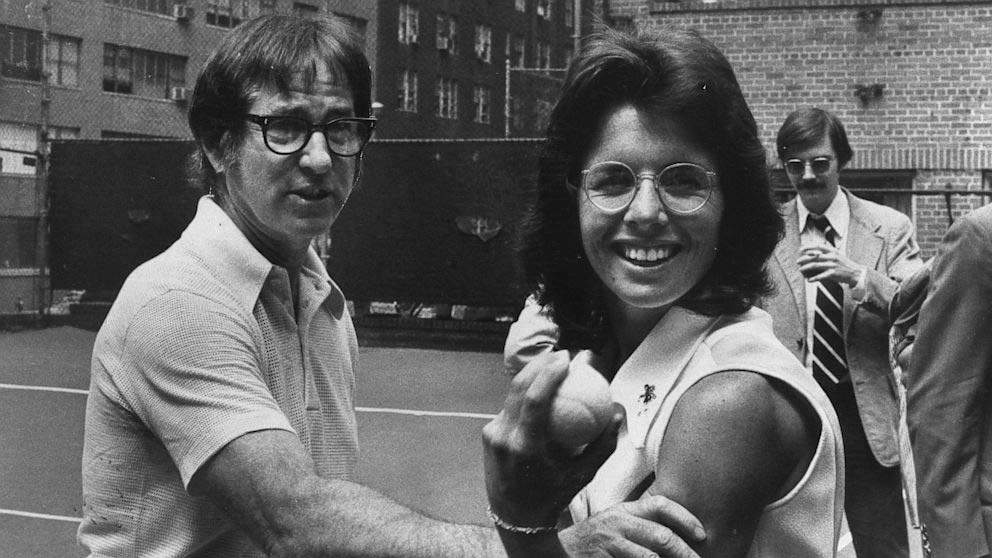The Battle of the Sexes
A tennis match with a legacy that has lasted to this day.
Overview
It was known as The Battle of the Sexes — a 1973 tennis match between former men’s champion Bobby Riggs and then women’s champion Billie Jean King. It would be the most watched tennis game in history, with a $100,000, winner-takes-all purse. But for King especially, the match was about much more than the prize money. In an era of appalling gender inequality, it was a symbolic chance to prove to the world that women were just as capable as men, in sport or in any other endeavour. All she had to do was come out on top.
In their retelling of the match, directors James Erskine and Zara Hayes employ a style similar to that of Oscar winner James Marsh (Man on Wire, Project Nim), sneakily blending archival footage with re-enactments in order to immerse their viewers and heighten the sense of narrative. In doing so, they ensure that even those with no interest in tennis stay engaged, gripped by a story that has much more to do with politics and personality than it does with hitting a ball over a net.
It helps that history has gifted them with a marvellous pair of characters. At one end of the court, the 55-year-old Riggs, a self-described chauvinist pig who would tell any newspaper or television crew that would listen that he was going to "put [King] and all the other women’s libbers back where they belong — in the kitchen and the bedroom”. At the other end, King, an outspoken feminist who had already boldly defied the U.S. Tennis Association when she, along with eight other female players, established their own tournament circuit in protest of unequal prize money. Even someone who hated tennis would watch the movie, purely in the hope of seeing King put Riggs in his place.
Admittedly, Erskine and Hayes’ attempt to make the game an allegory for the entire feminist movement doesn’t always work. In reality, the match was just as much about marketing as it was discrimination. At a certain point it becomes clear that Riggs was less a hardcore misogynist than he was a shameless self-promoter, generating controversy for his own financial benefit (although that he was willing to exploit society’s sexism in order to do so makes him arguably just as bad). It’s a shame that Riggs, who died of cancer in 1995, wasn’t able to be interviewed.
Still, the match’s legacy shouldn’t be understated. As a pointed closing title-card points out, tennis is, to this day, the only sport with equal cash prizes for both men’s and women’s events. There’s no denying that King played a part in that, with the film concluding with statements by current women’s champions — including Maria Sharapova and the Williams' sisters — about the influence that King had on them. Obviously she's an inspiring individual, and overall the doco does her justice.





